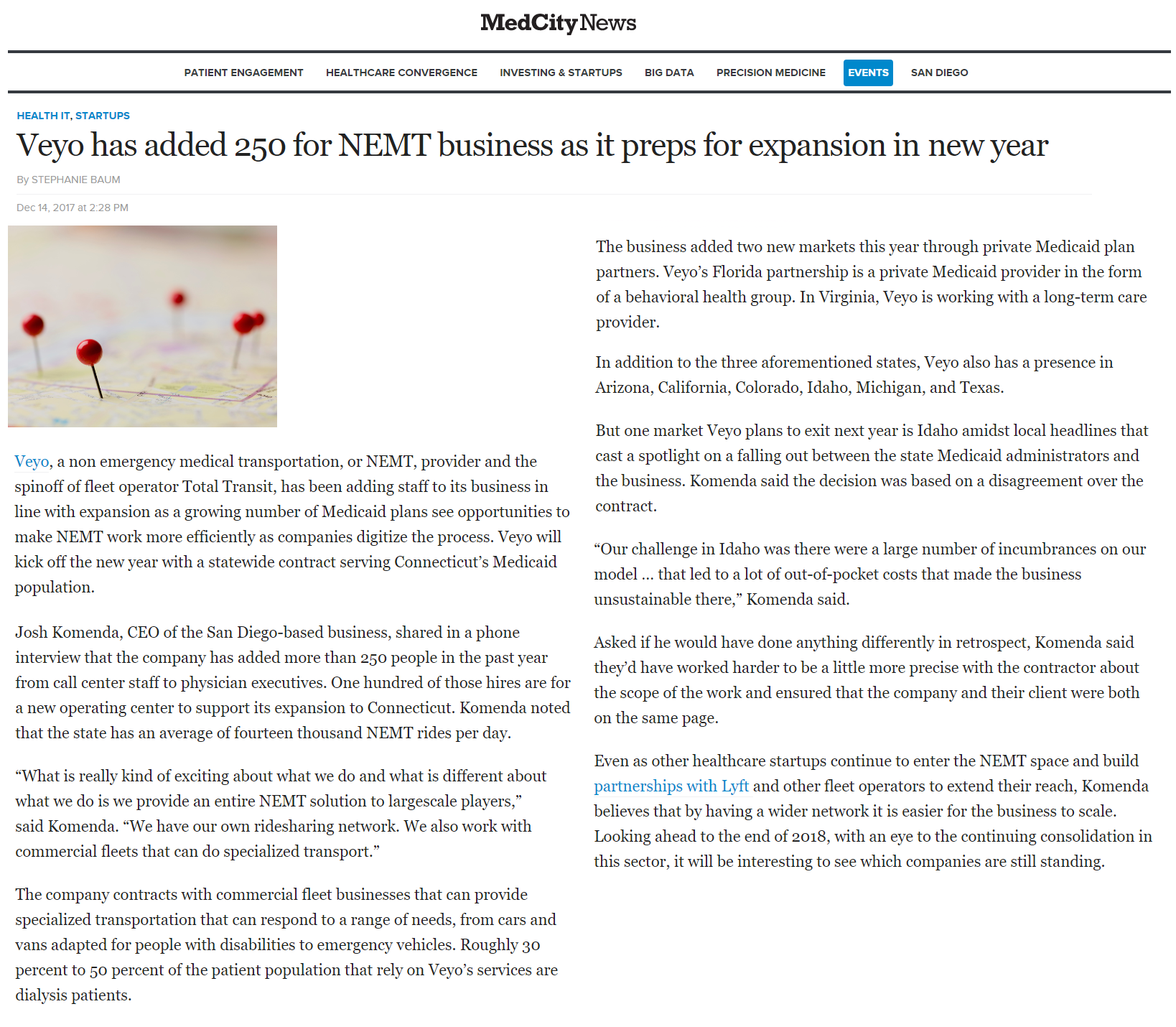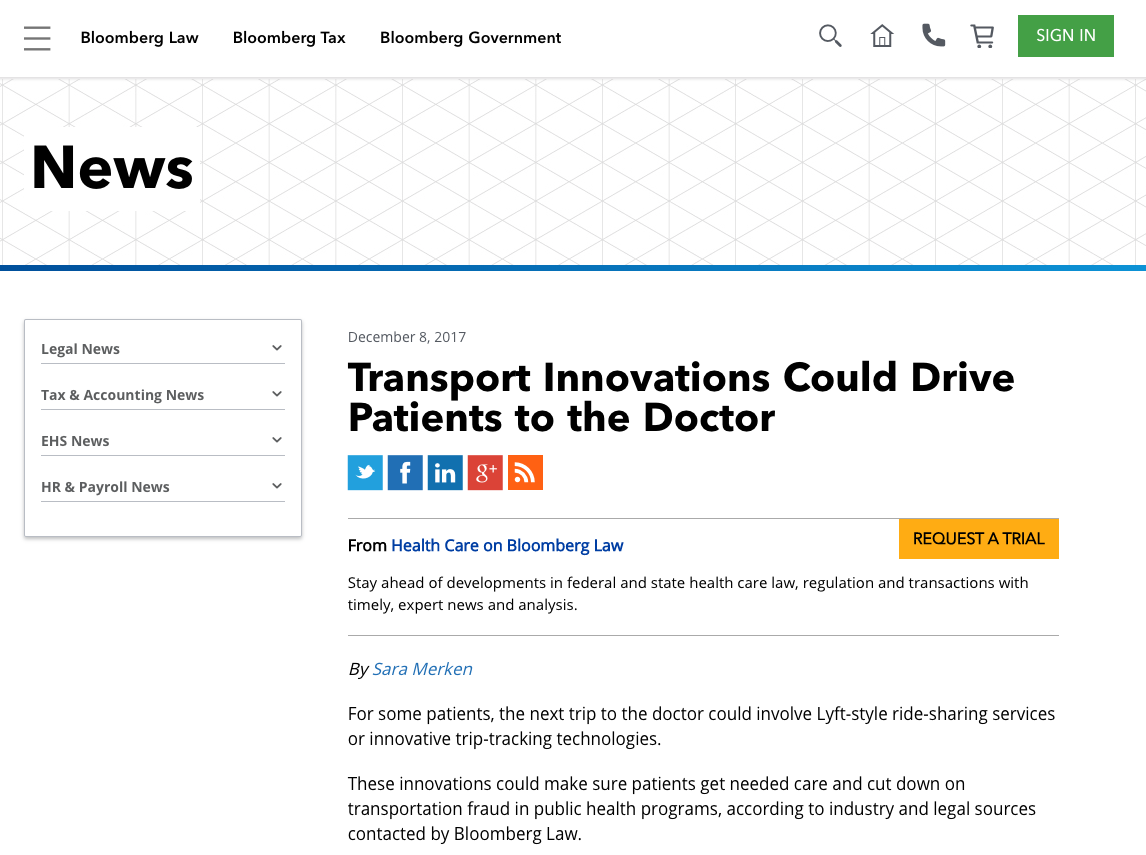Veyo Adds 250 for NEMT Business as it Preps for Expansion in 2018
December 18, 2017
Veyo was recently highlighted in a MedCity News article highlighting our expansion plans for 2018. The original article can be found here.
——-
Veyo, a non emergency medical transportation, or NEMT, broker and the spinoff of fleet operator Total Transit, has been adding staff to its business in line with expansion as a growing number of Medicaid plans see opportunities to make NEMT work more efficiently as companies digitize the process. Veyo will kick off the new year with a statewide contract serving Connecticut’s Medicaid population.
Josh Komenda, CEO of the San Diego-based business, shared in a phone interview that the company has added more than 250 people in the past year from call center staff to physician executives. One hundred of those hires are for a new operating center to support its expansion to Connecticut. Komenda noted that the state has an average of fourteen thousand NEMT rides per day.
“What is really kind of exciting about what we do and what is different about what we do is we provide an entire NEMT solution to largescale players,” said Komenda. “We have our own ridesharing network. We also work with commercial fleets that can do specialized transport.”
The company contracts with commercial fleet businesses that can provide specialized transportation that can respond to a range of needs, from cars and vans adapted for people with disabilities to emergency vehicles. Roughly 30 percent to 50 percent of the patient population that rely on Veyo’s services are dialysis patients.
The business added two new markets this year through private Medicaid plan partners. Veyo’s Florida partnership is a private Medicaid provider in the form of a behavioral health group. In Virginia, Veyo is working with a long-term care provider.
In addition to the three aforementioned states, Veyo also has a presence in Arizona, California, Colorado, Idaho, Michigan, and Texas.
But one market Veyo plans to exit next year is Idaho amidst local headlines that cast a spotlight on a falling out between the state Medicaid administrators and the business. Komenda said the decision was based on a disagreement over the contract.
“Our challenge in Idaho was there were a large number of incumbrances on our model … that led to a lot of out-of-pocket costs that made the business unsustainable there,” Komenda said.
Asked if he would have done anything differently in retrospect, Komenda said they’d have worked harder to be a little more precise with the contractor about the scope of the work and ensured that the company and their client were both on the same page.
Even as other healthcare startups continue to enter the NEMT space and build partnerships with Lyft and other fleet operators to extend their reach, Komenda believes that by having a wider network it is easier for the business to scale. Looking ahead to the end of 2018, with an eye to the continuing consolidation in this sector, it will be interesting to see which companies are still standing.



